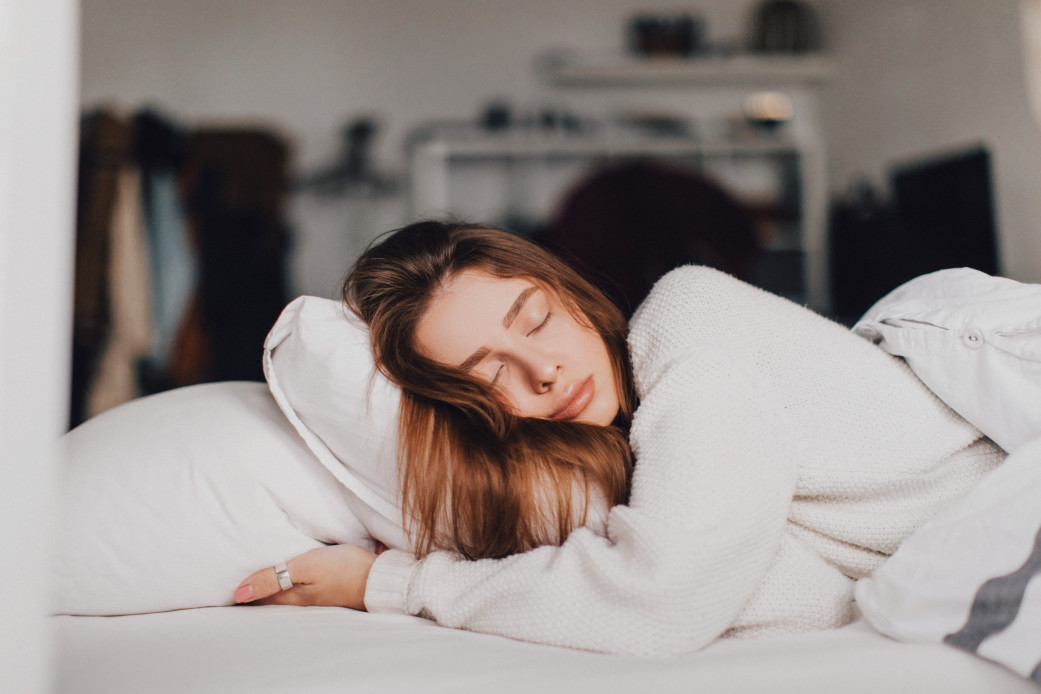Experts recommend that the average adult gets at least 7 hours of sleep per night. According to statistics, less than 40 percent of Americans reach that threshold. People suffer from lack of sleep for many reasons, but the result is always the same.
Experiencing a lack of sleep will interfere with physical, mental, and emotional health. Many people are exhausted and sleep-deprived but still lie awake night after night. As a last resort, many people turn to pharmaceutical sleep aids, but these can be addictive and harmful to one’s health.
Why are People Sleep Deprived?
Most people who experience chronic insomnia report that they cannot slow the thoughts that fill their brains. People may be stressed from work, relationships, or responsibilities.
Caffeine is a significant contributor to insomnia and should be avoided for several hours before bedtime. Although alcohol is thought to make people sleepy, it is actually detrimental to your sleep efforts as it interferes with productive and deep sleep.
One modern-day cause of sleep deprivation is our screens. Research has shown that if someone uses a computer, smartphone, or tablet just before they go to bed – or worse, while in bed – it can seriously affect their ability to fall asleep. It is recommended that you shut off all devices at least two to three hours before bedtime; if you can shut your wi-fi router off overnight, even better.
Why Do We Need Sleep?
Of course, sleep is needed to survive. However, the amount of sleep a person experiences each night also affects most major human functions.
* When sleep-deprived, brain neurons slow down, affecting decision-making skills, reasoning, and reaction times.
* When a person does not get enough sleep, too many hunger hormones are released, while satiety hormones are produced in lower amounts. This means the sleep-deprived are more likely to overeat because they feel more hungry than they should.
* Chronic sleep deprivation accelerates illnesses and medical conditions such as diabetes, obesity, high blood pressure, and heart disease.
Can Acupuncture Help?
Those who desire a better quality or quantity of sleep but wish to find a natural solution may be surprised to learn about the effectiveness of acupuncture in helping to alleviate insomnia.
In a study published in the Journal of Neuropsychiatry Clinical Neuroscience, adults living with anxiety and insomnia underwent acupuncture treatment for five weeks. Those participating in the study exhibited increased melatonin released into the body. Melatonin is a sleep hormone that encourages the onset of sleep and helps the body stay asleep throughout the night. Participants also reported that their anxiety and stress levels were significantly decreased, which also helps to calm their minds and allow for sleep to occur more quickly.
When combined with herbal sleep remedies, acupuncture increased the number of hours slept and decreased the amount of time required to fall asleep.
Besides Acupuncture, What Can You Do?
Even though acupuncture can help alleviate insomnia significantly, individuals should also develop an environment conducive to sleep and work on adopting effective sleep habits.
The bedroom should be designed so that the occupant can more easily fall asleep and stay asleep. Research an appropriate mattress, keep the room cool, dark, and quiet, and install blackout curtains to block out light. Many people also like white noise machines to block out any noises that could prove distracting.
Longevity Wellness Clinic provides acupuncture services and comprehensive naturopath and nutritional services. Call today for more information on naturally getting your health and wellness on track!



